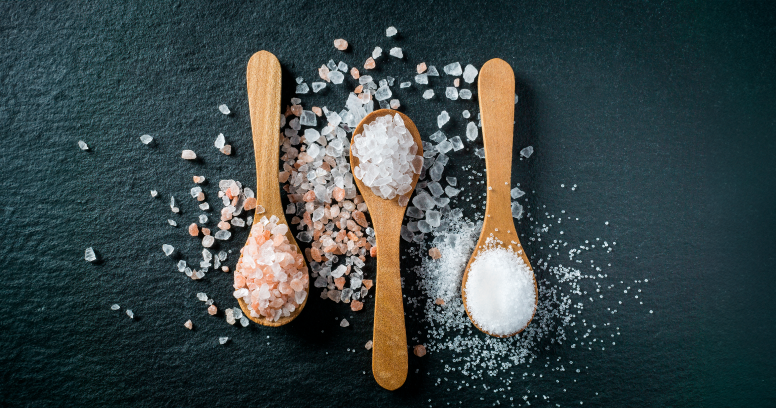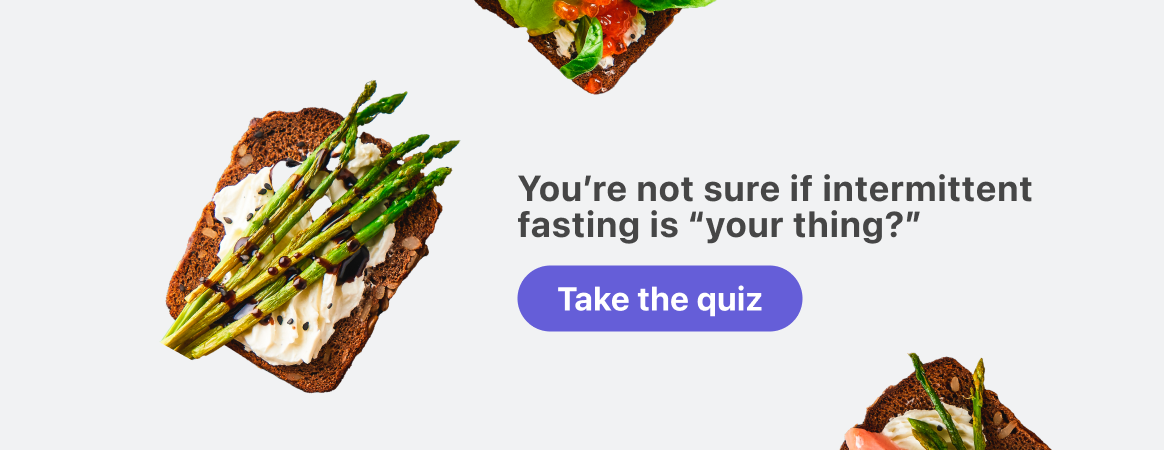Does salt break a fast? — Explained by Simple

Salt may be the quintessential seasoning for meals, but consumed on its own, does eating salt break a fast? Does the type of salt make a difference? Does sodium itself break a fast?
Before you get sidetracked by researching “How are there so many forms of salt?!” here’s what you need to know about salt while fasting.

Will salt break a fast?
So, does sea, iodized, or pink salt break intermittent fasting?
Nope! At least not on its own. (Sprinkling it over fries Salt Bae style is a different story…)
As a mineral with zero carbs, protein, fat, or calories, salt won’t interrupt your fast.
However, depending on the type of fasting you’re doing, questions like “Can salt break a fast?” and “Does salt break your fast?” may have different answers. For example, if you’re fasting for religious reasons, consuming anything other than water may technically break your fast.
Whatever fasting experience you’re after, it’s important to work with your healthcare provider. Fasting isn’t right for everyone — especially if you’re considering salt water fasting or fasts longer than 18 hours — so you should always ensure intermittent fasting is safe for you before trying it.
If you’ve gotten the all clear, we can help make fasting Simple. From general advice on what breaks a fast or fasting for weight loss to more specific concerns like “What’s the deal with intermittent fasting and insulin resistance or insulin levels?” or “Does fasting lower blood pressure?” our experts have all the answers you need. Take our Simple quiz to get started!
What is salt?
Used in the kitchen for flavoring and preserving food, salt is an essential nutrient that supports various psychological processes, like electrolyte balance, nutrient absorption, and muscle contraction.[1]
Nutritional value
Salt is composed of two electrolytes (or essential minerals): sodium and chloride. Certain types of salt — like Himalayan salt, rock salt, or iodized salt — may contain additional minerals, like magnesium, potassium, calcium, iodine, iron, and/or phosphorus.
In its pure form, salt doesn’t contain any calories. One teaspoon (6 g) of your average table salt contains around 2,300 mg of sodium, which is the CDC’s recommended daily maximum value.[2]
Flavored salts may contain additional calories / nutrients from added ingredients.
Health benefits and possible drawbacks of using salt while intermittent fasting

Regardless of whether you’re taking salt for fasting specifically, your body needs salt.
It helps support healthy:
Salt and fasting actually go pretty well together because eating salt while fasting offers a chance to replace and rebalance the fluids and nutrients your body uses in a fasted state.
While not getting enough salt during fasting can cause nausea, muscle cramps, dehydration, and dizziness,[7] too much might cause hypertension and heart disease,[8,9] so it’s important to monitor your intake day to day.
Tips on using salt during a fast
- Consult your doctor. Figuring out how much salt during fasting is right for your body can be tough, especially if you have pre-existing health conditions or you’re in an environment where you’re more likely to become dehydrated.
- Supercharge your water. Drinking a glass of salt water while fasting can be a great way to replenish electrolytes. We recommend mixing 1/8 of a teaspoon into 12 oz of water. You can also read our guide on what you can drink while fasting for other fasting-safe beverages.
Build your eating windows around nutrient-dense whole foods. Ultra-processed foods like deli meats, frozen pizza, and chips are often high in salt, so we recommend prioritizing natural sources of sodium like vegetables, shellfish, and dairy products. Not sure where to start? Our guide on what to eat during fasting has loads of health-promoting ideas.

- Kaushik S, Kumar R, Kain P. Salt an Essential Nutrient: Advances in Understanding Salt Taste Detection Using Drosophila as a Model System. J Exp Neurosci. 2018 Nov 21;12:1179069518806894.
- CDC. Sodium Intake and Health [Internet]. Centers for Disease Control and Prevention. 2023 [cited 2024 Feb 12].
- Aburto NJ, Ziolkovska A, Hooper L, Elliott P, Cappuccio FP, Meerpohl JJ. Effect of lower sodium intake on health: systematic review and meta-analyses. BMJ [Internet]. 2013 Apr 4 [cited 2024 Feb 12];346.
- Strazzullo P, Leclercq C. Sodium. Adv Nutr. 2014 Mar 1;5(2):188–90.
- Kuo IY, Ehrlich BE. Signaling in muscle contraction. Cold Spring Harb Perspect Biol. 2015 Feb 2;7(2):a006023.
- Wang J, Ou SW, Wang YJ. Distribution and function of voltage-gated sodium channels in the nervous system. Channels. 2017 Nov 2;11(6):534–54.
- Oh H, Lee HY, Jun DW, Lee SM. Low Salt Diet and Insulin Resistance. Clin Nutr Res. 2016 Jan;5(1):1–6.
- Grillo A, Salvi L, Coruzzi P, Salvi P, Parati G. Sodium Intake and Hypertension. Nutrients [Internet]. 2019 Aug 21;11(9).
- Xue XD, Li W, Xie MQ, Wang DZ, Li DD, Xin P, et al. High sodium diet intake and cardiovascular diseases: An attributable death study in Tianjin, China. J Clin Hypertens. 2023 Jan;25(1):30–7.
